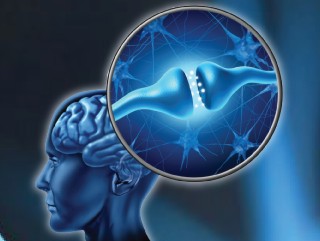Podcast: Play in new window | Download (Duration: 50:06 — 92.0MB)
The Endocannabinoid System as Master Regulator

This is an amazing time for research into the endocannabinoid system (ECS), it’s role in human health and how certain herbs and plants contain compounds that either have a direct effect on receptors in the body or play a role as a precursor to endocannabinoids, or both.
It has been about 30 years since the discovery of the endocannabinoid system. We now know a lot more about what it does and how it works. Most of what we know came out of research on cannabis extracts including THC and CBD and are certainly the most well known. But now we also understand that there are many other related cannabinoids in cannabis besides THC and CBD. We also understand that there are many other plants that have compounds that have an identified effect on the ECS sometimes described as phytocannabinoids.
In this interview with Chip Paul, we will look closely at the role of the endocannabinoid system as well as emerging science that looks at how many common plants can affect the ECS. There has been a lot of research in this area that I didn’t realize existed. Chip’s interest is exploring how to put together plant extracts that can provide a predictable benefit to the ECS. We will also explore the role of the ECS in human health and it’s role as a master regulator of other systems in the body.
Endocannabinoid System (ECS) Background
In our evolutionary cycle, before we developed a brain, we developed an endocannabinoid system, we also developed a central nervous system in this same ancestor, the sea squirt.The endocannabinoid system is the only system that connects your brain to every single cell in your body. Further the endocannabinoid system connects and interfaces to every other major human system, even further, research indicates that in every major system, the endocannabinoid system is the controlling system. The endocannabinoid system is in every mammal, every avian, every reptile, every fish. Most insects lack an endocannabinoid system, however, insects that bite mammals have endocannabinoid receptors in their mouths, for instance a tick.
The Endocannabinoid System can affect every cell in the body and exerts it’s effects through CB1 and CB2 neuroreceptors. We understand from cannabis research that the ECS can be influenced in very specific ways. We are now learning that many plants have compounds that affect the ECS. New research indicates that many very common herbs and plants contain flavonoids which affect the ECS. These flavonoids in plants and foods are resources for the ECS.
What does the ECS do? excerpt from Gnupharma.com
 The ECS is responsible for feeding and craving behaviors. This is also the system that determines addictive behaviors.
The ECS is responsible for feeding and craving behaviors. This is also the system that determines addictive behaviors.- The ECS is responsible for the immune response. This is how your body deals with injury and includes, the inflammation response, the pain response, stem cell cuing and deflammation response.
- The ECS is heavily involved with body regulation. It controls the bodies cycles and clocks. So hormone regulation, female cycles, and the sleep cycle are all influenced by the ECS.
The hypothalamus is the “intellligence” in the system and acts very similar to the computer (with sensory array) in your vehicle. It can monitor down to the cellular level and affect any bodily system by virtue of the ECS. End excerpt.
Gnupharma research and products are based on this theory:
- First is the idea that the ECS has high level effects on other systems in the body such the central nervous system, pituitary system, hormones, organs and cells.
- Second is the idea that the ECS is a resource driven system. It is affected by the availability of of nutrients and pre-cursors that are required by the body. These need to be replenished.
- Third, the ECS is affected by different compounds in many different plants and these compounds are unique and have varying benefits. Products can be created by intelligently combining different plant extracts. Chip suggests that over 4000 plants have already been identified as having some effect on the ECS. Here are examples of a few: tumeric, black pepper, red clover, ginger, cocoa, onion, peppermint, sage, echinacea, kale and many others. These plants are distinct from cannabis.
Gnupharma has developed various products based on this research and you can research these on the company’s website. They have also demonstrated that these products can be delivered to the body in a variety of forms including capsules, tinctures, aromatherapy and essential oils and herbal teas. These products are safe and can be used on a daily basis to support a healthy ECS. They are intended to provide the nutrient resources to replenish the ECS.

About Chip Paul
Chip is the co founder of Gnupharma. Chip is also one of the co-founders of Oklahomans For Health, the organization that twice petitioned the State of Oklahoma for medical cannabis. As a result of research he conducted for founding Oklahomans for Health and writing the law, Paul gained a profound understanding regarding the internal system that medical cannabis effects, the endocannabinoid system. GnuPharma is studying ways to effect the ECS using plant based flavonoids from very simple herbs. What this means is that, potentially, and in the very near future, many common health issues will be treated with targeted nutrition.












{ 0 comments… add one now }